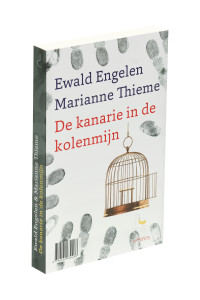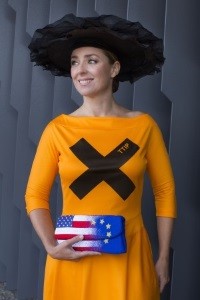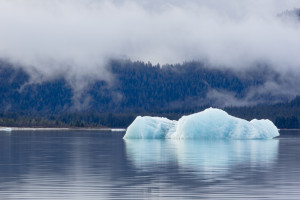Worldlog 18 Avril 2016
Dimanche le 10 avril nous avons eu le 22ième congrès déjà de notre parti. Bien 400 membres étaient présents à cette journée inspirante. Pendant chaque congrès je trouve que c’est particulier de voir des gens de différents passés qui partagent les idéaux de notre parti. A part des parties usuelles comme le compte rendu annuel et les comptes annuels, le professeur d’université invité de géographie financière Ewald Engelen a fait une conférence sur sa vision de la crise bancaire. Il a comparé le système complètement pourri à la manière dont le ravitaillement est organisé avec ses nombreux scandales alimentaires comme la fraude de la viande de cheval. Il a aussi raconté comment il a finalement changé d’un carnassier invétéré à un végétarien. Avec Ewald j’ai écrit le nouveau livre « Le Canari dans la Houillère« .

Dans Le Canari dans la Houillère nos visions sur l’économie et l’écologie convergent. Notre livre paraîtra aux Pays-Bas cette semaine. Spécialement pour les personnes intéressées internationales il y aura aussi une version anglaise sous forme d’un livre électronique. La parution de celui-ci est prévue pour le mois de mai, donc je vous tiendrai au courant!
Dans mes Worldlogs auparavant j’ai raconté du référendum qui a eu lieu aux Pays-Bas le 6 avril dernier où les Néerlandais ont pu faire savoir s’ils sont pour ou contre le traité de libre-échange entre l’UE et l’Ukraine. Avec mon parti j’ai mené une campagne contre le traité et par conséquent je suis très contente que la majorité des gens ait aussi voté contre. Je trouve que notre gouvernement, qui est pour, ne peut certainement pas ignorer le résultat contraire. La semaine dernière il y avait un débat à l’Assemblée nationale néerlandaise où j’ai de nouveau indiqué qu’un non du peuple néerlandais doit littéralement signifier un non et qu’alors le traité ne peut pas être ratifié.
Avant j’ai pressé notre gouvernement d’organiser un référendum concernant PTCI. A cette époque on a rejeté ma demande. Les résultats du référendum concernant un traité de libre-échange avec l’Ukraine montrent que les électeurs ont l’esprit critique quant aux traités de libre-échange. Aussi j’ai de nouveau déposé une motion pour un référendum pour savoir si PTCI est à souhaiter. Dans la semaine du 25 avril on en votera.

‘A quoi sert l’argent si la calotte glaciaire fond?’ C’était le titre de ma contribution au débat de la région arctique la semaine dernière. Nous voulons que le gouvernement s’engage complètement à la protection du pôle Nord. Le gouvernement néerlandais lutte pour une protection optimale pour le pôle Sud, mais pour le pôle Nord le bénéfice économique semble être placé au-dessus de la nature et l’environnement vulnérable.
Car malgré le fait que l’Assemblée nationale néerlandaise a adopté une motion en 2014 pour préserver la région arctique de l’extraction de pétrole et de gaz, le gouvernement semble s’adresser au développement des chances économiques au Grand Nord. Le gouvernement veut même défendre énergiquement les intérêts des entreprises néerlandaises qui peuvent gagner de l’argent par le forage de pétrole et de gaz qui peut avoir lieu vu le réchauffement du pôle Nord.

Le gouvernement veut protéger tout ce qui est beau, vierge et important, sauf quand il y a de l’argent dans la terre. Le gouvernement devrait mettre le fer de lance à la préservation de la région arctique et toute la planète de plus de réchauffement et pollution. Il n’y a pas d’autre intérêt qui peut compter plus.
C’est tout pour cette fois-ci, à la prochaine!
Cordialement,
Marianne
On Sunday the 10th of April, we celebrated our Party´s already 22th congress. More than 400 members were present on this inspiring day. Every congress it is remarkable to see people of so many different backgrounds sharing our party’s ideals. In addition to the customary items such as an annual report and annual financial accounts, Professor of Financial Geography Ewald Engelen gave a guest lecture on his views of the banking crisis. He compared the thoroughly rotten financial system to the way our food supply, with its many food scandals including the horse meat fraud, is organised. He also talked about how he had shifted from being a confirmed meat-eater to being a vegetarian. Together, Ewald and I have written our new book De Kanarie in de Kolenmijn (The Canary in the Coal-mine).

In De Kanarie in de Kolenmijn, our visions on economics and ecology meet. As of this week, our book will be sold in the Netherlands. An English version in the form of an e-book will also be published specially for our international readers. This e-book is expected to come out in the beginning of May, so I will keep you informed!
In my last Worldlogs, I have written about the referendum that was held in the Netherlands on 6 April. With this referendum, the Dutch people were able to indicate whether they were in favour of or against the trade agreement between the EU and Ukraine. Together with our party members, I have campaigned strongly against this agreement and I am therefore glad that a majority of the Dutch citizens has also voted against. I think that our government, which is in favour of the treaty, may definitely not ignore the result of this vote. Last week, during a debate in the Lower House, I have indicated once again that a no vote by the Dutch people should literally mean no, and the treaty should therefore not be ratified.
Earlier I have urged our government to hold a referendum on TTIP, but my request was denied. The result of the referendum on the EU/Ukraine treaty shows us that a majority of our voters are critical of free trade agreements. That is why I have once again tabled a motion for a referendum on the desirability of TTIP. It will be put to the vote during the week of 25 April.

“What good will money do you when the icecaps are melting?” That was the title of my contribution to the debate on the Arctic Region last week. We want to see the government fully commit itself to the protection of the North Pole. The Dutch government is fighting for optimum protection of the South Pole, but when it comes to the North Pole, economic gain seems to be put above the fragile wildlife and environment.
After all, despite the fact that the Lower House carried my motion of 2014 on safeguarding the Arctic Region against oil and gas extraction, the government still seems to be focusing on developing economic opportunities in the Arctic. The government is even planning on taking an active role in looking after the interests of Dutch companies that will make money from oil and gas drilling, which has now become possible due to the warming of the North Pole.

The government is willing to protect all that is beautiful, unspoiled and meaningful, expect when there is money in the ground. The government should make the protection of the Arctic Region and the entire planet against further warming and pollution its priority. No other interest can be of more importance.
That’s it for now, until next week!
Kind regards,
Marianne